Before I was ever a preacher, author, or prophetic voice in the nations, I was first a singer and a worshiper. It seems that I was always a “priest to the Lord” first and a “prophet to the people” second.
I started out by singing my heart out as loudly and strongly as I could–to the audience of One – on long walks on the railroad tracks in rural Missouri. Then I sang in the local Methodist church choir. I even won singing awards in the high school state music competitions for madrigals, solos, mixed double quartets, and the like. At one point, in my college years, I helped direct and arrange choral music for an interdenominational singing group called the Seekers, and later I sang in a trio called the Light of the Day. In the Jesus People movement, I was a part of releasing the new sound that was coming forth.
Singing praises to God was my great love. Honestly, it still is to this day. Although I have never made it my primary focus, I have never lost my joy and love of ministering to the Lord, first and foremost, in song. He has always been the passion of my life and He is the One alone who is worthy of a lifetime of praise, thanksgiving, and worship. He is worthy!
First Mention of Worship in Scripture
It may surprise you to know when the word “worship” is first mentioned in the Bible. Wouldn’t you expect it to be used in the context of a story about a temple or priests, or at least in one about psalmists with musical instruments? Far from it. Instead of lyres and priestly garments, the props for the first worship story in the Old Testament consisted of a knife, a bundle of firewood, and a rock for an altar–and the worshipers were two human beings who were absolutely desperate to obey God at any cost. Here’s the story:
Early the next morning Abraham got up and loaded his donkey. He took with him two of his servants and his son Isaac. When he had cut enough wood for the burnt offering, he set out for the place God had told him about. On the third day Abraham looked up and saw the place in the distance. He said to his servants, “Stay here with the donkey while I and the boy go over there. We will worship and then we will come back to you.”
Abraham took the wood for the burnt offering and placed it on his son Isaac, and he himself carried the fire and the knife. As the two of them went on together, Isaac spoke up and said to his father Abraham, “Father?”
“Yes, my son?” Abraham replied.
“The fire and wood are here,” Isaac said, “but where is the lamb for the burnt offering?”
Abraham answered, “God Himself will provide the lamb for the burnt offering, my son.” And the two of them went on together (Genesis 22:3-8).
You know how the story turned out. (If you don’t, go get your Bible and read the rest of chapter 22 of the book of Genesis.) I find it remarkable that what Abraham and Isaac did here was termed an act of worship.
But when we think about it, we recognize that worship always entails a living sacrifice. Worship–all worship, is an issue of the heart. You can have the best worship band in the Christian world and fail to truly worship if you are not genuinely desperate to lay down your own agenda in favor of His.
The Power of Worship and Thanksgiving
As highlighted by the story above, worship involves sacrifice (see also Rom. 12:1), and that means it requires an inner motivation. Abraham obeyed God’s command by his own volition. He had a free will, just as you and I do. God’s angel did not force him at spear-point to climb Mount Moriah. In the same way, our purest worship arises out of our inner motivation. and likewise, we are not forced to obey or worship God–it is our choice.
Worship positions us in exactly the right posture—bowing before the One who created us and Who sustains our every breath. We bow before Him not only because He gives us life, although that would be reason enough. We bow our hearts in astonished awe at the revelation of a great and holy God. Worship is the only valid response to God’s holiness. For eternity, those who choose to worship Him will gladly worship Him continually–yes, forever!
God is in the highest place, exalted above everything else in His creation. It would seem that the only possible response to entering His throne room and finding yourself in the presence of such absolute holiness would be worship.
In the past few years, I have been overwhelmed with many troubles. I never dreamed that I would go through eight years of an intense fight with cancer. I never expected that my wife would be hit, too, and that she would have to fight until her last breath. But even in the midst of the heat of the battle, Michal Ann always kept smiling and always kept praising the Lord. She just slipped over to the other side continuing her primary ministry, the one that she had maintained for her 52 years on earth. She continues her ministry of worship and praising the Lord!
I Worship God with My Questions
I still have a lot of questions, but I know what to do with them–I take my questions and I worship Him with my questions. I do it in the middle of the night, on long walks, in hotel rooms, on airplanes. By the grace of God, I have maintained my place of worship. I cannot describe how desperate I am, but also how thankful I am. He is my transcendent Lord and yet He is eminently approachable. He loves me, and I love Him. He is my magnificent obsession!
I worship Him, and I am genuinely thankful to Him. I have made thanksgiving the preferred utterance of my mouth, including numerous declarations of God’s goodness. I thank God for what He has done in the past and for what He is doing right now, believing that He is good all the time and that His mercies endure forever. That is what I have been called to do, and you have, too.
When we lose sight of God’s goodness and we forget to thank Him in the midst of difficult times, our mouths begin to leak out the other side; something called grumbling and complaining and criticism comes out – the opposite of thanksgiving. If we don’t watch out, we end up surrendering our tongues to the enemy and aligning our cause with the accuser of the brethren.
We can’t lose sight of the fact that thanksgiving is just as voluntary as worship is. Whereas worship is nowhere commanded of us in the Bible, thanksgiving is:
Let the peace of Christ rule in your hearts, since as members of one body you were called to peace. And be thankful. Let the message of Christ dwell among you richly as you teach and admonish one another with all wisdom through psalms, hymns, and songs from the Spirit, singing to God with gratitude in your hearts. And whatever you do, whether in word or deed, do it all in the name of the Lord Jesus, giving thanks to God the Father through Him (Colossians 3:15-17).
Those commands do not imply that we have to believe that our circumstances are fitting exactly with God’s will for us. We’re just supposed to be thankful. As we worship with words of gratitude, our sacrifice becomes a railroad track of faith and it can carry a payload of prayer.
In other words, thanksgiving is the key to releasing God’s supernatural power. Besides opening the way to blessings, thanksgiving somehow also sets a seal on those blessings. Jesus’ encounter with the ten lepers illustrates this principle. (See Luke 17:12-19.) All ten of them were healed, but only one turned back to thank the Healer. And Jesus commended him for doing it. From the emphasis given to that one leper’s gratitude, it appears to be as important as the healings themselves.
Send Judah First
Throughout the Old Testament, we see that the Israelites conquered their foes with the ultimate weapon—praise and worship. We know this because of the recorded fact that – of the 12 tribes of Israel – the tribe of Judah was the one that was usually sent first. (See, for example, Numbers 2:9.) The very name Judah means “praise” (see Gen. 29:35). The divisions from the tribe of Judah, praising the Most High simply by moving forward together, could shatter the atmosphere of resistance before the warriors from the other 11 tribes even got to the front lines.
In the same way, we need to “send Judah first” into our own situations. Are you facing an intimidating foe? Send Judah (praise) up against it first. Are you not sure you can hold the territory you have conquered? Send Judah first. Do you feel weak and worn out and confused? Send Judah first.
God-directed praise will rally all of the resources of God that any individual or group of individuals might ever need in any situation. Praise is unbeatable, invincible, inexhaustible.
Lift up the banner of praise! Drop your other garments and weapons by the roadside, and move forward like Judah, giving expression to a heart that is filled with godly confidence, awe, and courage. Praise the Lord! Yes, let’s just praise the Lord!

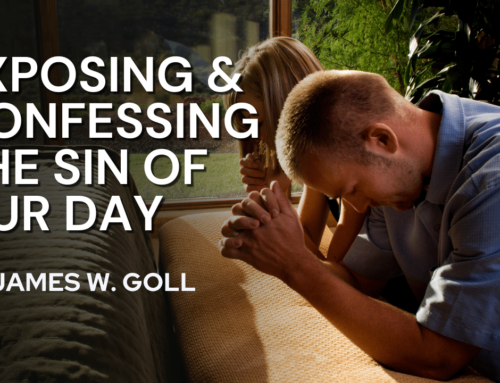
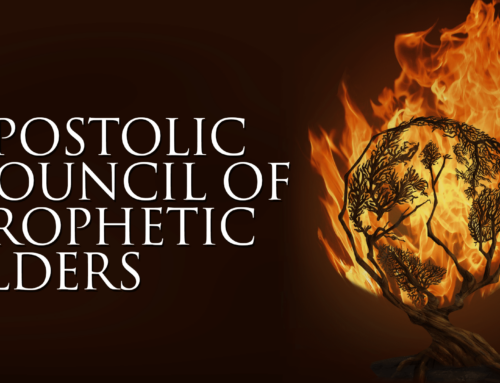
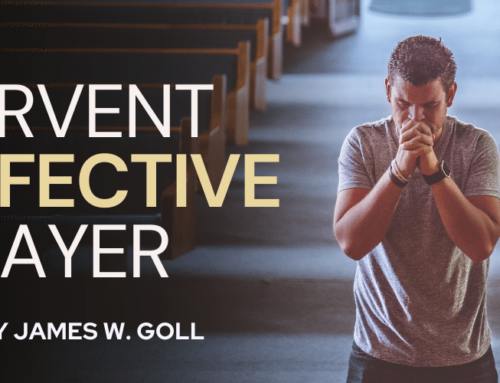
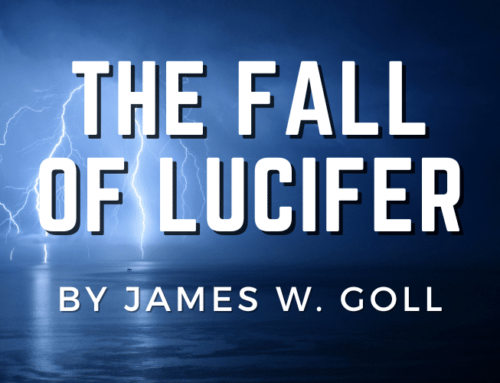
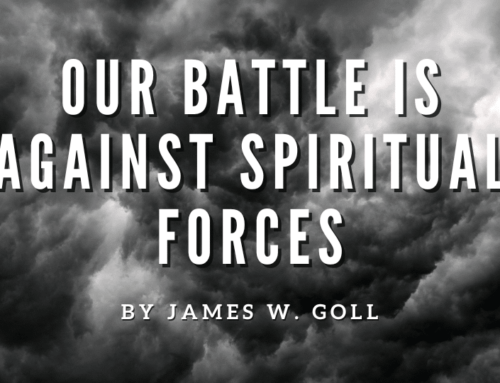
Leave A Comment
You must be logged in to post a comment.